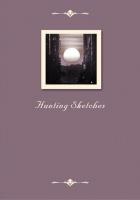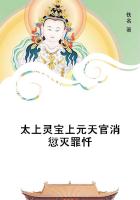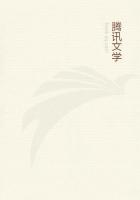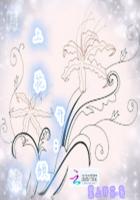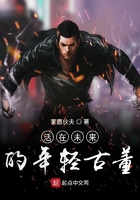"General: The want of shoes and blankets in this army continues to cause much suffering and to impair its efficiency. In one regiment I am informed that there are only fifty men with serviceable shoes, and a brigade that recently went on picket was compelled to leave several hundred men in camp, who were unable to bear the exposure of duty, being destitute of shoes and blankets.... The supply, by running the blockade, has become so precarious that I think we should turn our attention chiefly to our own resources, and I should like to be informed how far the latter can be counted upon.... I trust that no efforts will be spared to develop our own resources of supply, as a further dependence upon those from abroad can result in nothing but increase of suffering and want. I am, with great respect, "Your obedient servant, "R. E. Lee, General."
There was at this time a great revival of religion in the army. My father became much interested in it, and did what he could to promote in his camps all sacred exercises. Reverend J. W. Jones, in his "Personal Reminiscences of General R. E. Lee," says:
"General Lee's orders and reports always gratefully recognised 'The Lord of Hosts' as the 'Giver of Victory,' and expressed an humble dependence upon and trust in Him.'
All his correspondence shows the same devout feeling.
On August 13, 1863, he issued the following order:
"Headquarters, Army Northern Virginia, August 13, 1863.
"The President of the Confederate States has, in the name of the people, appointed August 21st as a day of fasting, humiliation, and prayer.
A strict observance of the day is enjoined upon the officers and soldiers of this army. All military duties, except such as are absolutely necessary, will be suspended. The commanding officers of brigades and regiments are requested to cause divine services, suitable to the occasion, to be performed in their respective commands.
Soldiers! we have sinned against Almighty God. We have forgotten His signal mercies, and have cultivated a revengeful, haughty, and boastful spirit. We have not remembered that the defenders of a just cause should be pure in His eyes; that 'our times are in His hands,' and we have relied too much on our own arms for the achievement of our independence. God is our only refuge and our strength. Let us humble ourselves before Him. Let us confess our many sins, and beseech Him to give us a higher courage, a purer patriotism, and more determined will; that He will hasten the time when war, with its sorrows and sufferings, shall cease, and that He will give us a name and place among the nations of the earth.
"R. E. Lee, General."
His was a practical, every-day religion, which supported him all through his life, enabled him to bear with equanimity every reverse of fortune, and to accept her gifts without undue elation. During this period of rest, so unusual to the Army of Northern Virginia, several reviews were held before the commanding general. I remember being present when that of the Third Army Corps, General A. P. Hill commanding, took place. Some of us young cavalrymen, then stationed near the Rappahannock, rode over to Orange Court House to see this grand military pageant. From all parts of the army, officers and men who could get leave came to look on, and from all the surrounding country the people, old and young, ladies and children, came in every pattern of vehicle and on horseback, to see twenty thousand of that "incomparable infantry" of the Army of Northern Virginia pass in review before their great commander.
The General was mounted on Traveller, looking very proud of his master, who had on sash and sword, which he very rarely wore, a pair of new cavalry gauntlets, and, I think, a new hat. At any rate, he looked unusually fine, and sat his horse like a perfect picture of grace and power. The infantry was drawn up in column by divisions, with their bright muskets all glittering in the sun, their battle-flags standing straight out before the breeze, and their bands playing, awaiting the inspection of the General, before they broke into column by companies and marched past him in review. When all was ready, General Hill and staff rode up to General Lee, and the two generals, with their respective staffs, galloped around front and rear of each of the three divisions standing motionless on the plain. As the cavalcade reached the head of each division, its commanding officer joined in and followed as far as the next division, so that there was a continual infusion of fresh groups into the original one all along the lines. Traveller started with a long lope, and never changed his stride. His rider sat erect and calm, not noticing anything but the gray lines of men whom he knew so well. The pace was very fast, as there were nine good miles to go, and the escort began to become less and less, dropping out one by one from different causes as Traveller raced along without check. When the General drew up, after this nine-mile gallop, under the standard at the reviewing-stand, flushed with the exercise as well as with pride in his brave men, he raised his hat and saluted.
Then arose a shout of applause and admiration from the entire assemblage, the memory of which to this day moistens the eye of every old soldier. The corps was then passed in review at a quick-step, company front. It was a most imposing sight. After it was all over, my father rode up to several carriages whose occupants he knew and gladdened them by a smile, a word, or a shake of the hand. He found several of us young officers with some pretty cousins of his from Richmond, and he was very bright and cheerful, joking us young people about each other. His letters to my mother and sister this summer and fall help to give an insight into his thoughts and feelings. On July 15th, from Bunker Hill, in a letter to his wife, he says:

